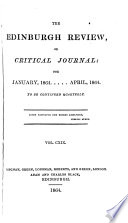 | James Luke Meagher - 1909 - 558 pages
...Organum, says : " Heat itself, its essence and quiddity, is motion and nothing else." Locke wrote: " What in our sensation is heat in the object, is nothing but motion." Descartes held the same opinion. Boyle, two centuries ago, wrote a treatise called, " The Mechanical... | |
 | William Duane Ennis - 1910 - 460 pages
...the object, which produces in us that sensation from which we denominate the object hot ; so [that] what in our sensation is heat, in the object is nothing but motion." Young argued, " If heat be not a substance, it must be a quality; and this quality can only be a motion."... | |
 | William Duane Ennis - 1910 - 464 pages
...motion THE NATURE AND EFFECTS OF HEAT 3 was produced by an "igneous matter." Locke defined heat as "a very brisk agitation of the insensible parts of the object, which produces in us that sensation from which we denominate the object hot ; so [that] what in our sensation... | |
 | Manchester Literary and Philosophical Society - 1923 - 838 pages
...seventeenth century. Heat was considered by them as a motion among the particles of matter. ' Heat,' says Locke, ' is a very brisk agitation of the insensible parts of the object, which produces in us that sensation from which we denominate the object hot ; so what in our sensation is... | |
 | Alexander Wood - 1925 - 120 pages
...SCIENCES, PARIS, ETC. ETC. ETC.). [Philosophical Transactions, 1850, Part I. Read June 21, 1849.] " Heat is a very brisk agitation of the insensible parts of the object, which produces in us that sensation from whence we denominate the object hot ; so what in our sensation is... | |
 | 1864 - 632 pages
...held the belief that heat was motion, and Locke expressed the same view concisely as follows : ' Heat is a very brisk ' agitation of the insensible parts...object, which produce ' in us that sensation from whence we denominate the object ' hot ; so that what in our sensation is heat in the object is ' nothing... | |
 | Smithsonian Institution. Board of Regents - 1869 - 488 pages
...placed beyond the pale -of doubt by the excellent quantitative researches of Mr. Joule. "Heat," says Locke, " is a very brisk agitation of the insensible...denominate the object hot ; so what in our sensation is heal in the object is nothing but motion." When the electric current, .still feeble, begins to pass... | |
 | Smithsonian Institution. Board of Regents - 1872 - 484 pages
...placed beyond the pale of ' doubt by the excellent quantitative researches of Mr. Joule. "Heat," says Locke, " is a very brisk agitation of the insensible...object, which ' produce in us that sensation from which we denominate the object hot ; so what in our sensation is heat in the object is nothing but motion."... | |
 | Charles Coulston Gillispie - 1960 - 596 pages
...metaphysics. He wrote a summary paper in 1849. ^ ij prefaced by two statements, the first from Locke: Heat is a very brisk agitation of the insensible parts of the object, which produces in us that sensation from which we denominate the object hot; so what in our sensation is... | |
| |